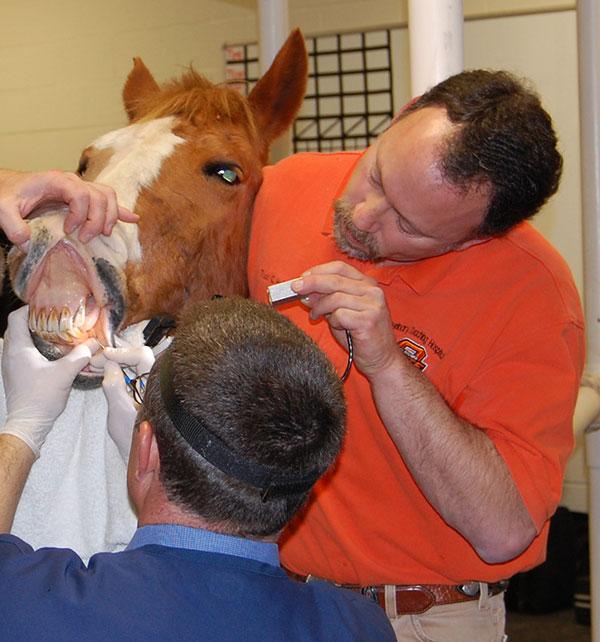
Dental Care for Horses
Thursday, February 1, 2018
According to the American Association of Equine Practitioners, proper dental care is key for your horse. Your veterinarian can learn a lot about an animal’s health by examining its mouth.
Beyond the comfort and good health of your horse, there are other benefits to proper dental care.
Feed will be consumed more efficiently with less spillage or waste if your horse’s teeth are in good working order. Proper diet may help your horse perform better and live longer.
Equine dentistry is more than just floating teeth. It’s much broader and examines the horse’s health more systematically.
General goals of equine dentistry include:
- Improving the chewing of food
- Relieving pain and treating or curing infection and disease
- Promoting general health, productivity and longevity
A routine examination by your veterinarian will help detect dental disease and other health problems early. Early detection is important to help prevent more painful and costly problems later.
Soon after birth, a foal should have a dental examination. Another is due at three months of age and every six months thereafter until the horse is age five. Healthy adult horses need a yearly dental examination. Horses older than 20 or horses with a history of dental problems should have a dental examination twice a year.
How do you know if your horse is having dental issues? Certain observations in your horse’s behavior may be clues. Has your horse’s general attitude changed? Is its appetite normal? Is your horse able to chew?
Make an oral examination an essential part of your horse’s annual exam by your veterinarian. Every dental exam provides your veterinarian the opportunity to perform routine preventative dental care as well as find any health issues that may be brewing.
by Elisabeth J. Giedt, DVM
Veterinary Viewpoints is provided by the faculty of the OSU Veterinary Medical Hospital. Certified by the American Animal Hospital Association, the hospital is open to the public providing routine and specialized care for all species and 24-hour emergency care, 365 days a year.
